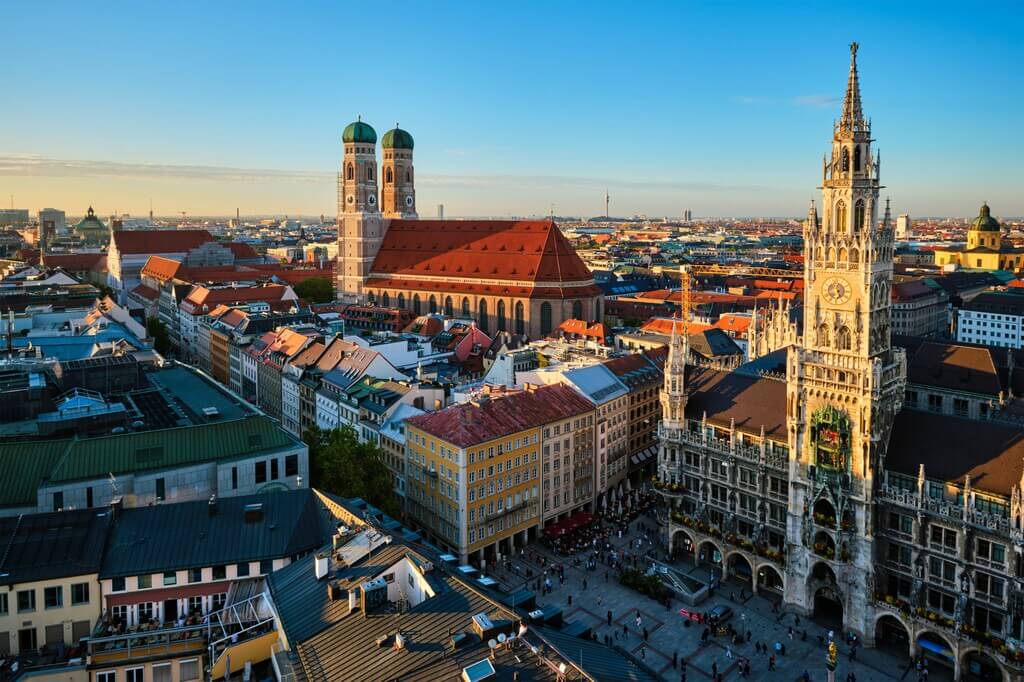List your property on Airbnb in Germany
To list your property on Airbnb in Germany, follow these steps:
- Check local regulations: Before listing, verify local regulations in your area. Some cities have restrictions on short-term rentals.
- Registration: You must register your property with local authorities. This often includes obtaining a permit or registration number, which must be displayed on your listing.
- Create an account: Sign up for Airbnb in Germany on their platform.
- Prepare your property: Ensure your property meets all necessary standards, including safety, amenities, and cleanliness.
- Set up your listing: Include detailed descriptions, high-quality photos, and all amenities. Clearly state house rules and expectations.
- Opt for professional photography: Consider using professional photography to enhance your listing’s appearance.
- Pricing strategy: Set a competitive price based on market research and perhaps dynamic pricing tools to adjust rates as demand changes.
- Publish your listing: Once your listing is polished and complies with local laws, publish it on Airbnb.
Is Airbnb legal in Germany?
Yes, starting an Airbnb in Germany is legal, but it’s regulated under specific local laws, which vary by city. Nationwide, hosts must register their property and obtain a registration number. Rental income through Airbnb is taxable, and hosts must declare this income to the German tax authorities.
While national regulations are in place, it is essential to note that specific local laws may differ by city. Below, we provide a detailed overview of the regulatory landscape for several prominent German cities.
Berlin
- Restriction on rental periods: Only the primary residence can be rented out for short stays and for no more than 90 days per year unless a permit for longer rentals is obtained.
- Registration requirements: Mandatory registration with the local authorities and a visible registration number on the listing.
Munich
- Limited rental periods: Entire homes can be rented out for up to eight weeks per year without a special permit, but renting out rooms within your primary residence is less restricted.
- Registration and permits: Requires registration, and permits may be necessary for longer rental periods or for secondary residences.
Hamburg
- Housing protection number: Hosts must register and display a housing protection number or permit on their listings.
- Rental caps: Full rental of primary residences is allowed up to 8 weeks a year without a permit. Longer rentals require a permit from local district offices.
Cologne
- Permit for long-term rentals: Rentals exceeding 90 days per year require a permit. There are exceptions for students who may rent for up to 180 days.
- Registration: Mandatory registration for hosting is required.
Frankfurt
- Short-term permit availability: Permits for short-term rentals are needed if renting out the entire primary residence for less than eight weeks per year or renting out an individual room.
- Regulatory compliance: Registration with local authorities is mandatory, and hosts must comply with local housing laws.
Dresden
- Tourist tax: Dresden imposes a lodging tax on short-term rentals, which must be collected from guests and passed on to the city.
- Permit requirements: Similar to other cities, permits may be required for rentals beyond the primary residence or for extended periods.
Leipzig
- Regulation of rental periods: Leipzig allows the short-term rental of primary residences without extensive permits but requires registration.
- Compliance with local laws: Hosts must ensure their activity aligns with local urban housing regulations.
These rules are subject to change, and hosts must stay informed about the latest regulations in their city to ensure compliance and avoid penalties.
Airbnb taxes in Germany
When listing your property on Airbnb in Germany, it’s crucial to be aware of the tax implications related to rental income. Here are the critical points concerning the taxation of Airbnb revenues in Germany:
- Income category: Rental income from Airbnb in Germany is taxed as “surplus income,” meaning only the net after expenses are taxed.
- Basic allowance: Every taxpayer has a basic tax-free allowance, which for 2023 is set at 10,908 euros for individuals.
- Progressive tax rates: Tax rates start at 14% and can increase to 42% depending on the income bracket.
- Solidarity surcharge: A 5.5% surcharge may apply to your tax, though it’s been reduced for many taxpayers since 2021.
- Municipal taxes: Local property taxes may apply and vary by municipality for Airbnb in Germany.
Frequently Asked Questions (FAQs)
Is Airbnb in Germany profitable?
Yes, Airbnb can be profitable in Germany, but profitability varies by location and the type of property offered. Cities like Berlin, Munich, and Hamburg have high tourist demand, which can lead to higher rental income. However, hosts must consider local regulations, operational costs, and taxes, which can impact profitability.
How can foreigners buy an Airbnb in Germany?
Foreigners can buy property in Germany and use it for Airbnb rentals. The process involves finding a suitable property, securing financing (if not buying outright), and complying with local regulations regarding property rentals. Foreign buyers should consult with a local real estate agent and a lawyer to navigate the purchasing process and ensure compliance with German laws.
Did Berlin ban Airbnb?
Berlin has not banned Airbnb, but strict regulations have been imposed to prevent housing shortages. These include limits on the days a property can be rented out annually without a permit and registration requirements with local authorities.
Who can become an Airbnb host in Germany?
Anyone who owns or legally rents a property in Germany can become an Airbnb host, provided they comply with local regulations. This includes obtaining necessary permits, adhering to rental caps, and registering with local authorities if required.
Where can I register my German property on Airbnb?
To register your property on Airbnb in Germany, start by creating an account on the Airbnb website. Follow the platform’s process to list your property, which includes providing details about the property, setting up pricing, and specifying availability. Ensure you comply with local regulations and have all necessary permissions in place before listing.







2 Responses
Hallo Mr Timmermans ,
my name is Abiodun Lawal ,i work and live in Munich Germany. I came across your page while checking an info about Property investment and AirBNB business set up . I find this interesting and i would like to gain more know from you due to the fact that you are a master of this lucrative business.
Kindly reply to my mails when you receive it .
with regards ,
Lawal .
Hi Lawal, thanks for reaching out and for the kind words. I am happy to help you map out a property investment plan and a compliant Airbnb setup, including market returns, licensing, and management. Please email me at [email protected] or share your target location and budget here and I will send recommendations and next steps.